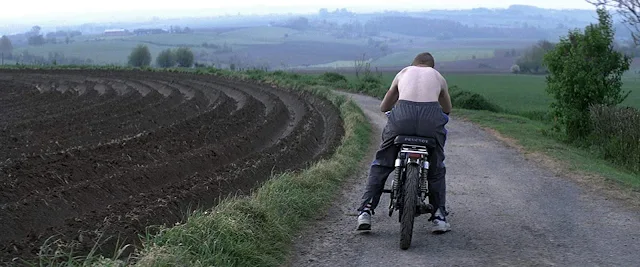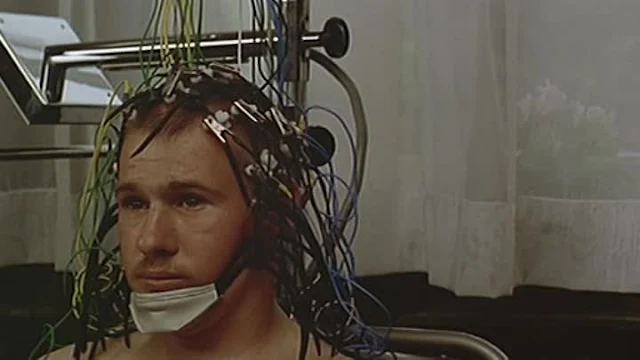 |
| Mati Diop and Alex Descas in 35 Shots of Rum |
If I hadn't read that Claire Denis said that 35 Shots of Rum was inspired by Yasujiro Ozu's Late Spring (1949), I'm not certain I would have spotted it. But once I learned that fact, it became obvious. Both films are about widowers living with their daughters, and both end with the daughter's marriage and the father contemplating loneliness. I would have to rewatch Late Spring to cite other parallels, but the central fact is that both films share a bittersweet, melancholy tone. It's striking to an American, especially one living in the Trump era of heightened racial awareness, that not much is made of the fact that Lionel (Alex Desecas) and Jo (Mati Diop) are black. It may be that it lingers as a subtext in the film, the way the devastation of Japan in the war lingers in the background of Ozu's films, surfacing in Denis's film only when the anthropology class Jo attends begins to discuss postcolonialism, with references to the radicalism of Frantz Fanon and other writers. Mostly, however, we stay in the enclosed world of Lionel and Jo and their friends, Gabrielle (Nicole Dogué) and Noé (Grégoire Colin). One of the film's challenges (and delights) is that Denis plunges us into their world without exposition, leaving us to discover the relationships (and even the names) of the characters as the narrative unfolds. For a while at the start of the film, I took Lionel and Jo to be a married couple or lovers, so close is their relationship, until it became apparent that they were father and daughter. Even the title takes some time to work out its significance: It refers to a ritual drinking bout that's supposed to occur at important celebrations, and we first see it at the retirement party of René (Julieth Mars Toussaint), Lionel's fellow driver in the metropolitan Paris train system. Though Lionel gets fairly inebriated, he decides the occasion isn't important enough to consume all 35 shots of rum. Eventually, René is unable to cope with loneliness and lack of purpose after the mandatory retirement and kills himself on the train tracks where Lionel is driving. René's death adds poignancy to Lionel's facing life alone after Jo marries -- a wedding at which he does indeed go through with the 35 shots ritual. Denis's film is a subtle, moving delight, full of details that are enough to provoke extended contemplation or even a rewatching. Decas and Diop (who would go on to direct her own fine film, Atlantics, in 2019) give quietly extraordinary performances.










